Blogs » Society » Linlong Fang: Cheap and Delicious Xiaolongbao
Blogs » Society » Linlong Fang: Cheap and Delicious Xiaolongbao |
- Linlong Fang: Cheap and Delicious Xiaolongbao
- You’ll Never Eat Chuan’r Again (Sober) After Reading This Story
- Deadly downpour in Beijing kills 37 so far
- Buddha Camp
- The Situation Is Excellent: The Week That Was At Beijing Cream
- Watch: Intel's flying kungfu laptop advert
- Teaching children to say no
- Pictures From Beijing’s Biggest Rainstorm In 61 Years
| Linlong Fang: Cheap and Delicious Xiaolongbao Posted: 22 Jul 2012 07:40 PM PDT Date: Jul 23rd 2012 10:29a.m. Contributed by: mengsta Xiaolongbao is Shanghai's most iconic snack, but if you're looking for some top-notch xiaolongbao at a nice place that won't cost an arm and a leg, try Linlong Fang. |
| You’ll Never Eat Chuan’r Again (Sober) After Reading This Story Posted: 22 Jul 2012 05:00 PM PDT By RFH Recently a doctor on Weibo recalled the story of a patient – a kabob (chuanr, in Beijing patois) seller – who came in with stab wounds in the 1980s after getting into a ruckus with a customer. Upon surgery, his problems were found to be far worse than previously assumed. His stomach was riddled with tapeworms. What prompted this tale? Mr. Xie from Yongkang, Zhejiang called up Zhejiang Online this week and reported the following story: Xiao Mei, a 23-year-old girl from Guizhou, went to Shizhu Town, Yongkang, just two months ago to work at a plastic factory with her husband. After finishing her night shift on July 15, she repaired to bed at 4:30 am with a severe tummy ache. "I felt the ache during work and thought it would get better when I came home. But it didn't. I can only curl up in bed. It hurts even when I try to stretch," Xiao complained. Her husband sent her to People's 1st Hospital of Yongkang, where doctors decided she had a twisted intestine and needed an operation immediately. "We knew there might be tapeworms, but we never thought there would be this many," Dr. Ding told reporters. Surgery staff were shocked when her stomach was cut open. "Clusters of tapeworms could be seen, everywhere, wriggling in the intestine," Dr. Ding continued. "They had gotten into bunches in the 0.5m-intestine of Xiao, and each of them was fist-sized." Fist-sized. Wriggling. "We took care of the twist and cut a 1 cm entrance… then we spent more than half an hour taking out the worms with clamps," said the doctor. The tapeworms were about 10 to 20 cm long, pencil-thick, and amounted to between 200 and 300 in total. Xiao Mei later said she grew up in the country and used to eat fruit from the orchard without cleaning them. (So did I, but I don't have a tapeworm convention in my belly. Or do I?) This story also gets just a little worse: apparently, (like a dog) the young lady has been on anti-worm medication for years, until she noticed there were no more worms in her (presumably irregular) bathroom visits. Thinking it was time to dump the meds, as it were, rather than vice versa, Xiao went clean. The stomachaches began soon after and continued until the above events. The story of the Beijing chuanr seller who got high on his own supply was disinterred for Weibo readers' consideration. It has a hint of urban myth about it, except urban myths tend to sound implausible the second you hear that "my friend's mom knew a babysitter who…" and then get quickly less credible than a People's Daily editorial. This, combined with long-standing rumors that street mutton is most likely cat meat soaked in sheep urine, is yet another reason to avoid street food like Dengue fever. What? No, we don't have any fucking photos. Think about it: really? You ate there last night. |
| Deadly downpour in Beijing kills 37 so far Posted: 22 Jul 2012 10:29 AM PDT The deadliest downpour to hit Beijing in 61 years has killed 37 people so far, according to latest figures released by the city government. The torrential storm wreaked havoc in the capital Saturday, with floods cutting off roads and causing traffic chaos. [ more › ]     |
| Posted: 22 Jul 2012 08:34 AM PDT
Buddha Camp is how Dave Miller describes the 'Seven-Day Intensive Chan Retreat' I am currently enduring. The retreat is in Upstate New York at the Dharma Drum Retreat Center. I have nobody to blame but myself. I knew what I was in for because, although I am not a Buddhist, I participated in many Chan retreats at Nung Chan Monastery, home monastery of the Center and related organizations, in Taiwan during the years I lived there, and also at the New York City branch. Two features of every retreat are no talking and no communication with the world outside–no mobile phone, Internet, nothing. So, I am doing posts now that will appear while I am incommunicado. And, since I'll be in the serious mode when they appear, I am making them on the lighter side. Who knows what will have happened in China by the time I emerge on Saturday July 28? No doubts events that will make us all wish for the lighter side. |
| The Situation Is Excellent: The Week That Was At Beijing Cream Posted: 22 Jul 2012 08:30 AM PDT
July 16 – July 22 Beijing survived its biggest sustained downpour in 61 years yesterday, and we have photos. On Friday, a man with mysterious motives took a female security guard hostage inside Tuanjiehu subway station on Line 10. After 70 minutes of failed negotiations, a sniper took him out. You can watch the video of the man here, or read our first post about the incident here. It was a good week to be a marketer. China Daily sold its front page to Louis Vuitton, a weight-loss company in Nanjing made national news by trotting out a blond model to do its advertising, and a Guilin park offered half-price entry for women whose miniskirts were shorter than a certain length. Then again, maybe not all marketers had a good week – City Weekend Shanghai offered all expat magazine editors a cautionary tale when it published an incredible music review last weekend. Xinhua launched an "English Forum," and of course it was a hilarious disaster. TAR Nation created CCP Mad Libs, and we took exception to Atlantic Cities — an otherwise exceptional website — calling Beijing's Olympic structures "ruins." A dolphin was photographed carrying a dead calf on its back. A police intern lost both legs trying to save a suicidal man on train tracks in Hebei. A Shanghai highway patrol department created an instructional gif out of a horrific traffic accident. A driver in Xiamen narrowly escaped death. A boy died in an ambulance that had been obstructed on the road by private cars. And this is the soundtrack for China's ransacking chengguan. Meanwhile, on Monday, residents of Jiezuo Dasha apartment complex near Sanlitun held a peaceful street protest due to electricity and water outages, though we understand the problem has since been resolved. There was a three-day flight delay in Shanghai, and Leona Lewis performed at the Bird's Nest last Saturday. We've started a BJC tag called "Fight." Enjoy. |
| Watch: Intel's flying kungfu laptop advert Posted: 22 Jul 2012 06:12 AM PDT |
| Posted: 22 Jul 2012 03:21 AM PDT  This is the 1510 Digest, a weekly roundup of recent essays and articles published in Chinese on My1510.cn, with links to translations on the Marco Polo Project. From 'tiger mums' to 'little emperors', contemporary family relations in China have given rise to many negative stereotypes. How should good Chinese parents bring up their children? What values and behaviours should be taught to the younger generation, to protect them as children, and allow them to grow into resilient, balanced and successful adults? This week's post proposes a selection of recent articles from 1510 on that topic. Teaching children to say no In this post Rose Luqiu Luwei explores the problem of child abuse in China. Recently, male alumni from her Middle School started a Weibo thread discussing events that took place fifteen years ago. One of their teachers had abused them sexually, under the pretence of 'physical examinations'. One of the boys, who now has children himself, decided to make the facts public, and was soon joined by many former schoolmates. Because these men refused an interview, Rose Luqiu Luwei finds herself unable to confirm the story, but reflecting on these events, she asks: shouldn't children learn to say no, when facing similar situations? And for that, shouldn't society become more aware that child abuse does take place in China? She then mentions the case of a girl from a Gansu village who was abused by her teacher. The facts became known after her cousin came back home crying, saying she didn't want the teacher to abuse her too. The family decided to raise alarm, and discovered it was not an isolated case. However, this is a rather rare occurrence. In most cases, children in rural areas do not talk about similar events, because the dominant attitude is still one of blaming the victim. The parents of that Gansu girl said they regretted never teaching her to say no, and that certain behaviours were inappropriate. But, optimistically, the post finishes with a sexual education scene in a Shanghai primary school, where children are taught that when adults behave in a certain way with them, they should very firmly say 'no', and quickly report it to their parents and teachers. Do not obstruct the child's independence Young people living in today's China enjoy higher levels of material abundance than earlier generations, but they are also be exposed to more pressure from society and their parents. In the eighties and nineties, young people knew they had been brought up in difficult times, and therefore developed strong feelings of guilt towards their family. But conditions also taught them to be more independent and responsible – because they knew they couldn't expect much from their parents. New generations grow up with a much higher debt; and cases of young people 'eating the old' – living off their parents to a late age – are increasingly common. In a modern society, it is the duty of parents to take care of their children as they grow up, but when they become adults, children need to become responsible. However, in China, parents often fail to establish clear boundaries with their children, both when they grow up, and once they've become adults. Parents often consider that they are not getting a good return on their sacrifices – yet keep on paying for their children. As a result, the children are likely to suffer from low self-esteem, depression and anxiety, and find themselves unprepared to face the difficulties of life. To finish, the author encourages parents to not stand in the way of future generations by loading them with debts and anxieties, but rather help them develop independent personalities, and support them not just by passing on material wealth, but also on solid values. Incompetent Chinese parents In the late nineties, anxious parents blocked the streets of Dalian to protect their children from the noise of cars while they sat the Gaokao exam, causing the death of an old man in a critical condition who couldn't reach hospital on time. At the time, Ran Yunfei published a short essay called 'educating parents', presenting such parental madness as a problem for society to address. In this post, he comes back to the topic of extreme parenting, considering a recent case reported in the news. Chen Dan, a successful young woman, was forcibly sent to a mental hospital by her parents in order to break up her romantic relationship with a man. When Chen Dan was at university, her parents found out from her diary that she was in love with a boy. They did everything in their power to end the story – including insulting the boyfriend – and succeeded. Twelve years later, when they discovered about another boyfriend, they had her forcibly taken to a mental hospital in front of the boyfriend. Chen Dan was fortunately released, and is now suing her parents for abuse. Although this is an extreme case, emotional abuse from parents is very common; and often, the excuse is – 'I do it because I love you'. But, according to Ran Yunfei, this is not a receivable argument, as 'love' is generally just a cover for sheer interest, and parents treating their children as private property. Parents will often spend a lot of money so that their child will succeed academically, but they will not spend time listening and guiding them, passing on values, and equipping them for psychological balance and happiness. They just pass on their own social insecurity. To finish, Ran Yunfei offers a counter example in the person of Liang Qichao, who brought up nine psychologically balanced and socially successful children by consistently listening to them, writing numerous letters to them, and encouraging their individual aspirations. This kind of education, he concludes, is the necessary basis for building a harmonious society. All articles in this digest and a large range of other Chinese readings are accessible at Marcopoloproject.org. Some are available in English, French and Spanish translation. (You can join the project if you'd like to help with translations.) Danwei is an affiliate of the Australian Centre on China in the World at The Australian National University. This posting is a result of one project that is part of that on-going collaboration. China Heritage Quarterly and East Asian History are two other publications supported by the Australian Centre on China in the World. |
| Pictures From Beijing’s Biggest Rainstorm In 61 Years Posted: 21 Jul 2012 10:55 PM PDT
Yesterday, Beijing saw its heaviest rainstorm since 1951, receiving on average 163.7 mm of precipitation as of 10 pm. Inevitably, there's some bad news, which we'll let China Daily deliver:
The city didn't collapse though, and that's good news, and those among us who weren't extremely unlucky last night have been blessed with possibly the finest-looking Sunday all summer. Before you get on with whatever fantastic plans you have, let us relive, one last time, The Rain:
Via Tori, at the Guo'an game: Via @MissXQ: H/T Alicia: Via @aradboaz: And finally, from professionals at QQ: Beijing Cream's coverage of the rain:
|
| You are subscribed to email updates from Update » Blogs » Society To stop receiving these emails, you may unsubscribe now. | Email delivery powered by Google |
| Google Inc., 20 West Kinzie, Chicago IL USA 60610 | |

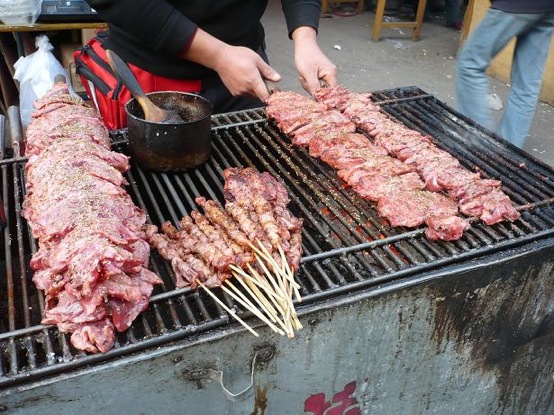














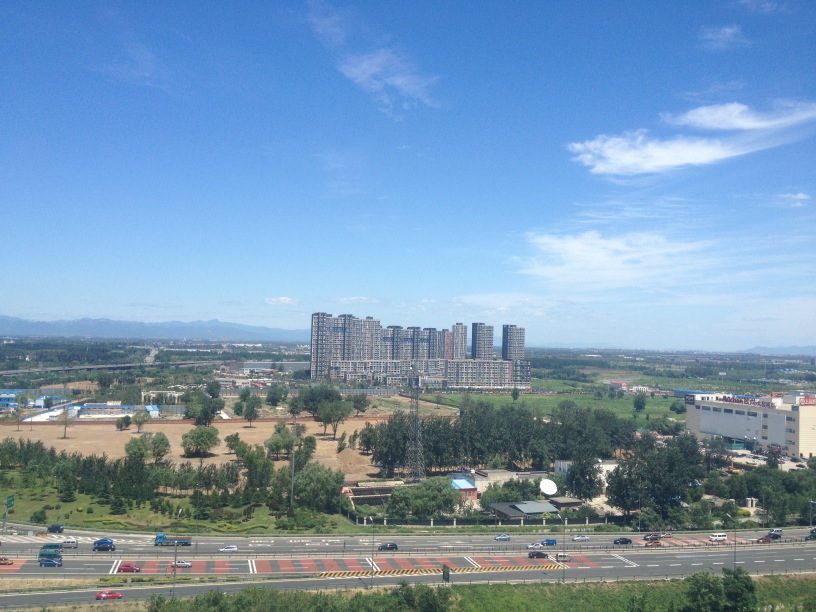
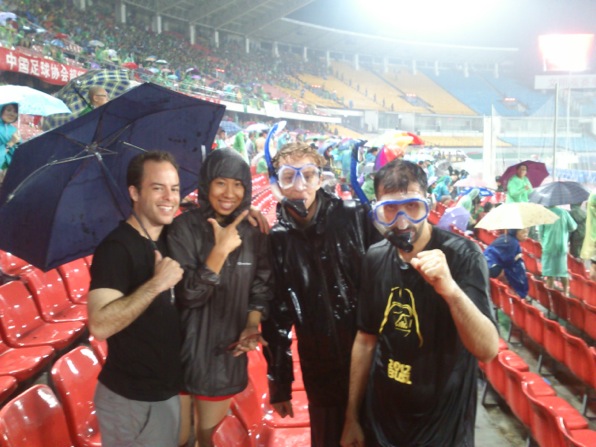
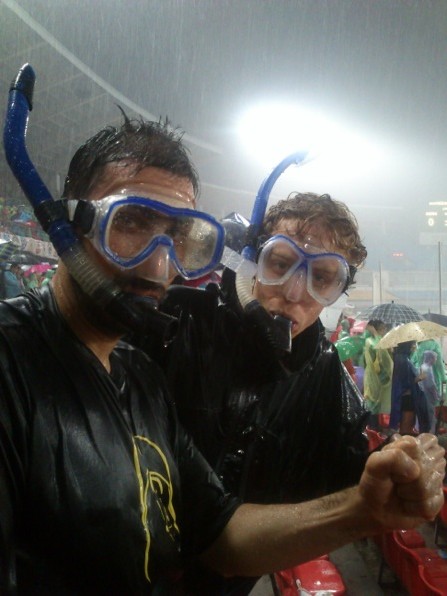
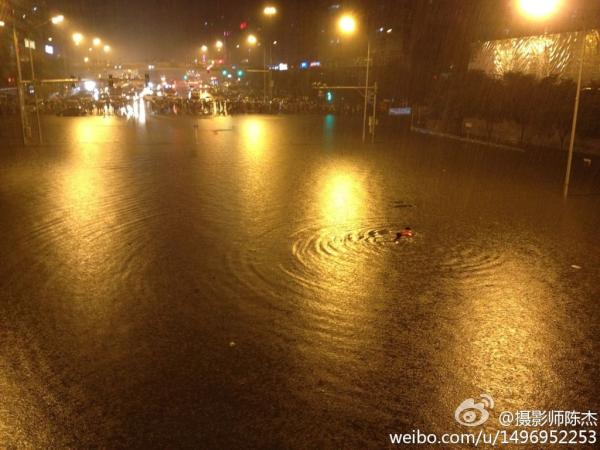
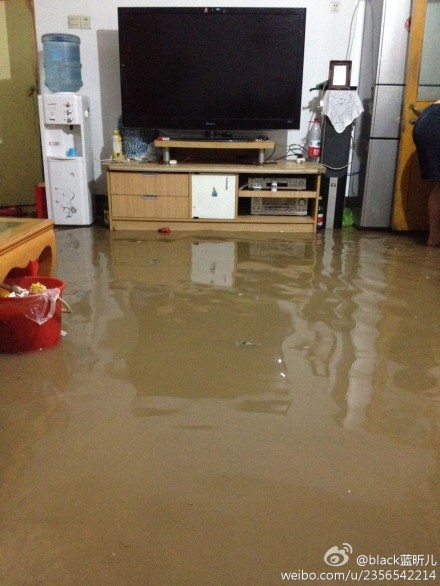
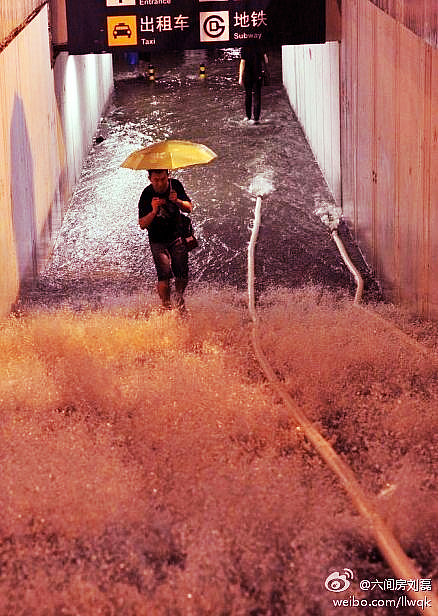
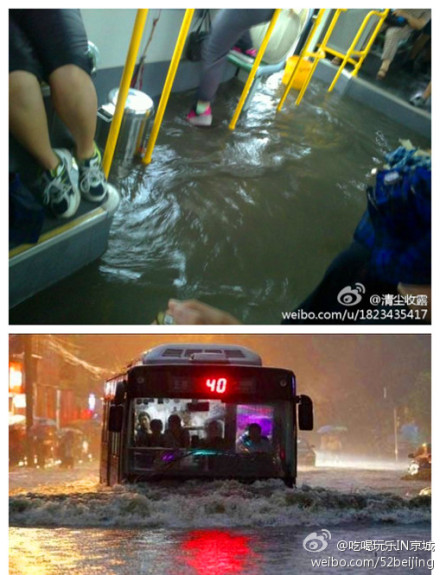

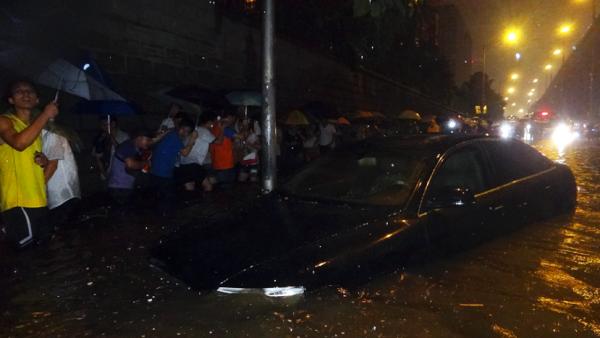

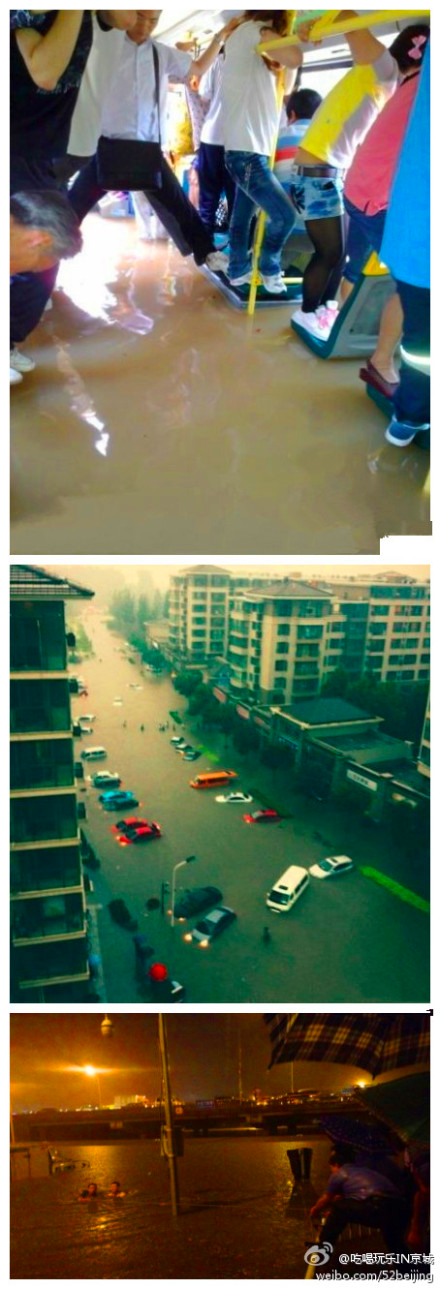
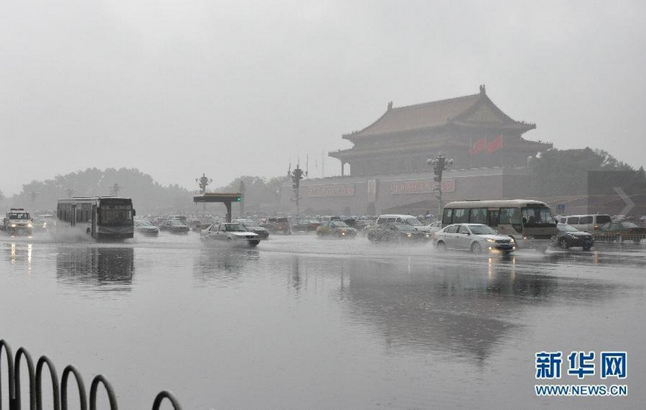
Comments